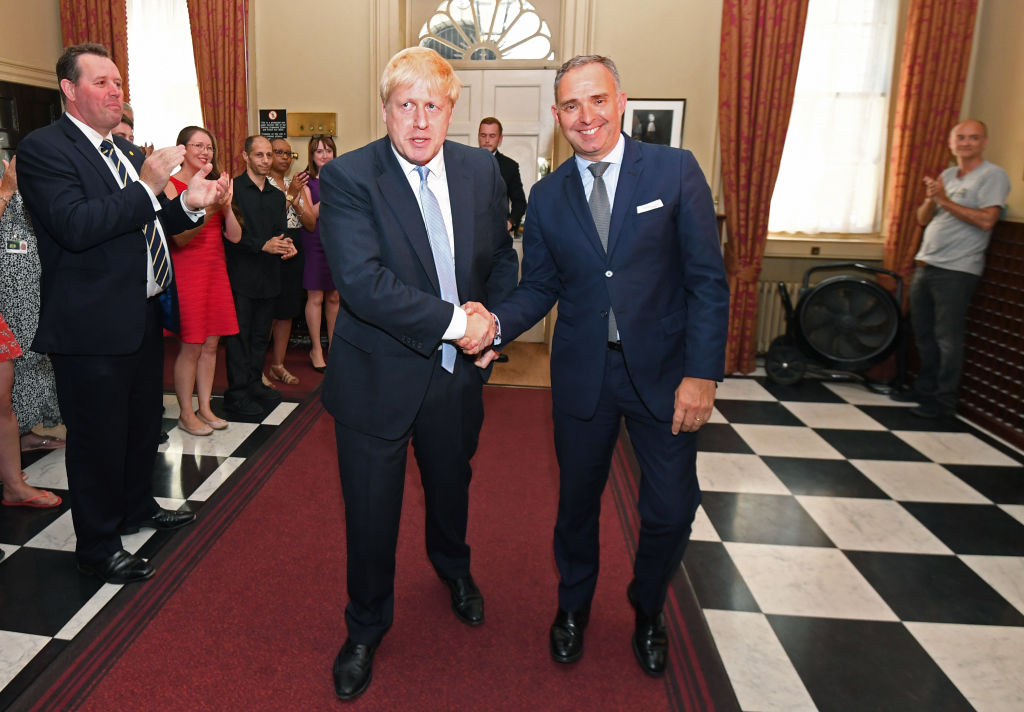As we learn of Mark Sedwill’s departure, I talk to Katy Balls and James Forsyth about its wider implications. While the announcement itself has not come as a total surprise (Sedwill was always more of a Mayite appointment than this government’s preference), James points out that it follows on the heels of a speech given by Michael Gove this weekend on civil service reform, in which Gove outlined the vision of a new, sleeker Whitehall. It’s a wish list that includes more technocratic civil servants who are expert in their field, rather than rotated as generalists. Katy points out that Sedwill has often been seen as ‘not on the same wavelength’ as the government on Whitehall reform. His departure is a nod towards the changes that are to come.
Katy also highlights that Mark Sedwill’s holding of two roles – cabinet secretary and National Security Adviser – is unusual, and a legacy of how he stepped in following the sudden death of Jeremy Heywood, his predecessor in the Cabinet Office. There has long been a feeling within government that the two roles are both full-time responsibilities, and so not easily performed by one person to the best effectiveness.
His successor on the national security committee will be David Frost, Britain’s chief Brexit negotiator, but no one has been appointed yet for the cabinet secretary role. James notes that there is no clear frontrunner in this race. The pool is small as the preference is for someone who is or has been a permanent secretary. With Sedwill leaving in September, this race will be one to watch.
Coffee House Shots is the Spectator’s daily politics podcast. To get your ten minute briefing from James Forsyth, Katy Balls, Fraser Nelson and more, subscribe to the podcast on all good podcast providers. Listen to this episode here:







Comments